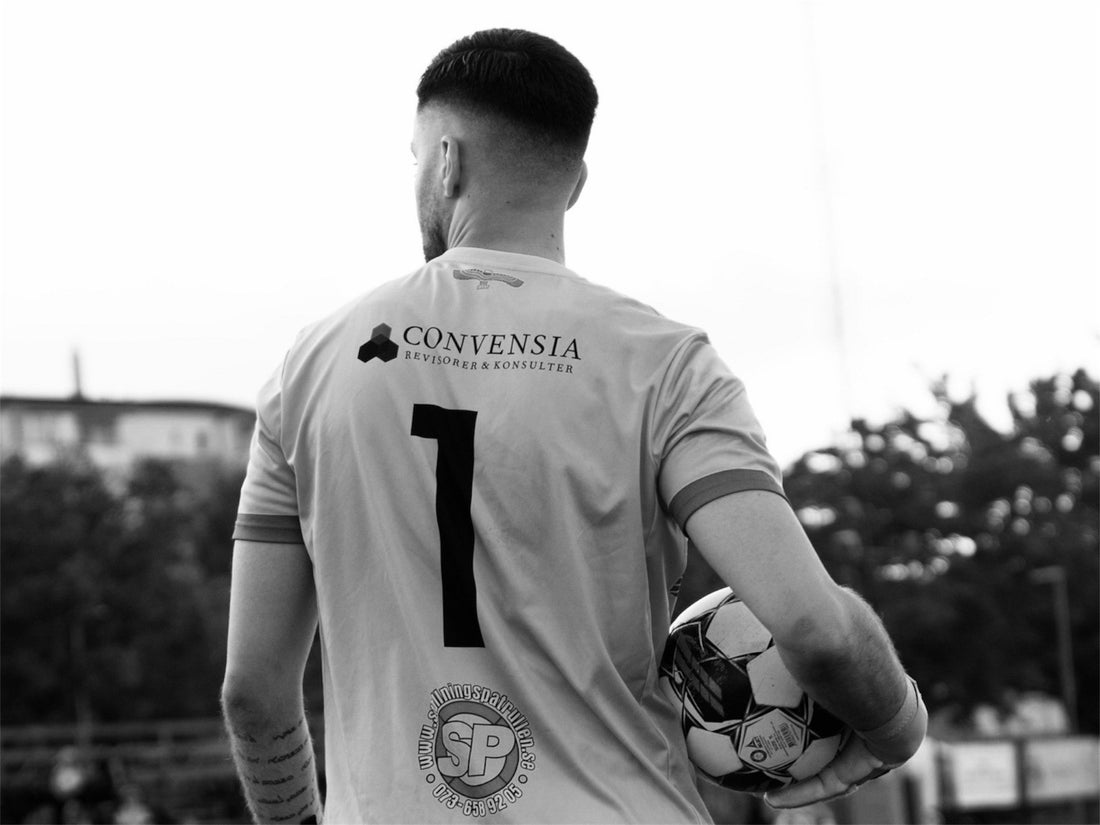As a goalkeeper, you often stand alone on the field. You are the one under the most pressure, the one who concedes goals and bears the responsibility for your team's success or failure. This unique position can be both amazing and challenging, but it's also important to understand that your mental health is just as important as your physical preparation.
In this blog, we’ll discuss how goalkeepers can take care of their mental health and why it’s crucial for both your performance on the field and your well-being off the field.
The Pressure on Goalkeepers: More Than Just Physically Demanding
Goalkeepers are often the ones who receive the most attention when something goes wrong on the field. A mistake can feel like a personal loss, and every goal conceded feels like a failure. This pressure can be extreme, especially when the team relies on you to keep a clean sheet or save points. But it's important to remember that failures are a natural part of the game. No one is perfect, and everyone makes mistakes, no matter the position.
Handling this pressure and learning to bounce back after a mistake is a big part of mental strength. Goalkeepers, just like other athletes, need to develop tools to manage the emotions and thoughts that arise during and after a match.
Managing Negative Thoughts
One of the biggest challenges for goalkeepers is dealing with negative thoughts that arise after a mistake. Many goalkeepers struggle with self-criticism and worry about their performance, which can affect both their confidence and future performances.
Here are some tips for managing negative thoughts:
-
Focus on the Present: After a mistake, remind yourself that it’s over. Focus on the next action, the next save. Staying in the moment helps you avoid being overwhelmed by past mistakes.
-
Develop Self-Compassion: Be kind to yourself when you make mistakes. Remind yourself that everyone makes errors sometimes, and that one mistake does not define you as a player. Learn to see every mistake as an opportunity to grow and improve.
-
Visualization and Positive Affirmations: Many successful goalkeepers use visualization to picture successful saves before they happen. Use positive affirmations to strengthen your self-confidence and calm your mind.
Stress Management and Recovery
Mental stress is a common challenge for goalkeepers. The constant high level of concentration and the pressure to keep the goal intact can be overwhelming. Finding ways to manage this stress is crucial for both your performance and your health.
Here are some methods to handle stress:
-
Breathing and Meditation: Deep breathing and meditation can help you calm your thoughts and regain control over stress. Take a few minutes before or after training to center yourself and find inner peace.
-
Post-Match Recovery: Giving yourself time to recover both mentally and physically after matches is important. Rest, good sleep, and relaxation are key to reducing stress and staying mentally healthy.
-
Talk to Someone: Just like physical training, mental training is important. If you feel the stress is too much or if you're struggling with performance anxiety or self-criticism, talk to someone. It could be a coach, a teammate, or a mental trainer. It’s important not to keep your feelings bottled up.
When to Seek Help
Just like physical injuries, mental health issues should be addressed and taken seriously. If you feel that anxiety, stress, or depression is affecting your performance or your daily life, it’s important to seek help.
Talking to a mental coach, therapist, or another professional can give you the tools to cope with tough periods. Mental health is nothing you should deal with alone, and it’s absolutely nothing to be ashamed of. Many athletes, including top goalkeepers, seek help to improve their mental well-being and performance ability.
Conclusion: Take Care of Your Mind and Your Heart
Being a goalkeeper means standing at the center of both your team's successes and failures. This pressure can be tough, but it’s important to remember that your mental health is just as important as your physical health. By taking care of your mental strength, managing negative thoughts and stress, and knowing when to seek help, you can become an even stronger and more successful goalkeeper both on and off the field.
Remember, it’s okay not to be okay sometimes – that’s part of the game, and taking care of your mind will help you come back stronger each time.

